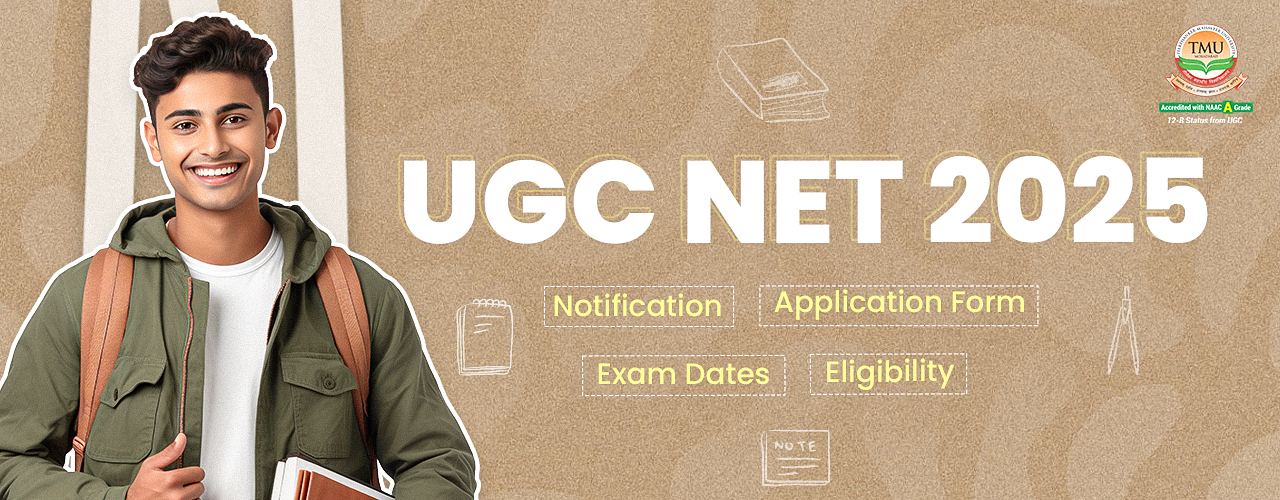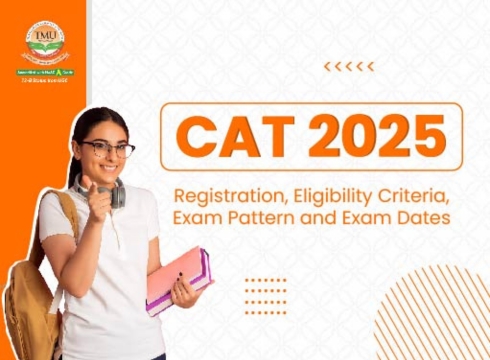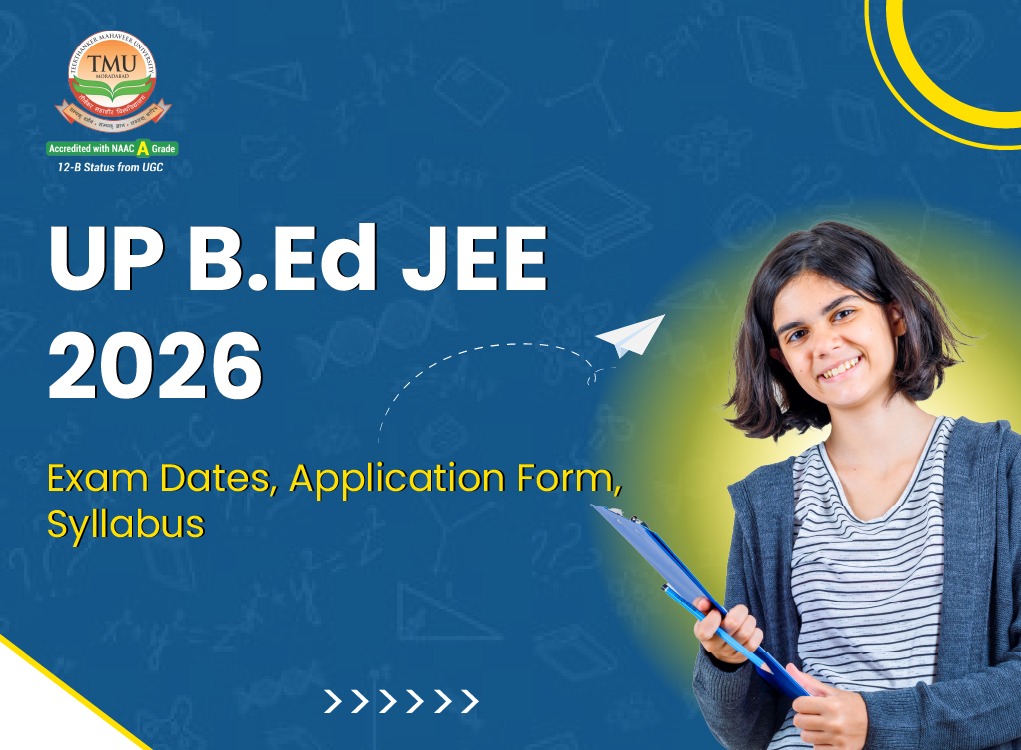UGC NET 2025: Application Form, Dates, Eligibility and Exam Pattern
Table of Contents
UGC NET full form is the University Grants Commission National Eligibility Test. It is a national-level examination conducted in India to determine eligibility for Assistant Professor and/or Junior Research Fellowship (JRF) in Indian universities and colleges. The exam is conducted twice a year, in June and December.
The latest update regarding UGC NET 2025 is that the exam for the December 2024 cycle had been started on January 3, 2025, and will continue until January 16, 2025. The notification for the June 2025 cycle will be released in March 2025 (Expected).
UGC NET 2025 Latest Updates
Provisional Answer Key Released
- The National Testing Agency (NTA) has published the UGC NET June 2025 provisional answer key, along with individual question papers and your recorded responses. You can access and download them via the official portal at ugcnet.nta.ac.in.
- The answer keys cover exams conducted June 25–29 in two shifts (9 AM–12 PM and 3 PM–6 PM).
Objection Window Open: July 6–8
- You can challenge any answer through the portal until 5 PM, July 8, 2025.
- A ₹200 non-refundable fee per question is required, with valid documentary support.
- After evaluation by subject experts, a final answer key will be released, followed by the official result declaration.
Important Dates Recap
| Event | Date / Deadline |
| UGC NET June exam | June 25–29, 2025 |
| Provisional Answer Key | Published July 6, 2025 |
| Objection Window Opens | July 6, 2025 |
| Objections Close | July 8, 2025 (5 PM) |
| Final Answer Key & Results | Expected mid to late July |
Teerthanker Mahaveer University
Apply for Admission
Click Here To Apply for Admission
UGC NET Full Form
UGC NET stands for University Grants Commission National Eligibility Test. It is a national-level exam conducted by the National Testing Agency (NTA) on behalf of the University Grants Commission (UGC) to determine eligibility for Assistant Professor and/or Junior Research Fellowship (JRF) positions in Indian universities and colleges.
UGC NET 2025 Notification
The University Grants Commission National Eligibility Test (UGC NET) is a national examination conducted by the National Testing Agency (NTA) to determine eligibility for Assistant Professorship and Junior Research Fellowship (JRF) in Indian universities and colleges.
Upcoming UGC NET Cycles:
- December 2024 Cycle:
- Notification Release: November 19, 2024
- Application Period: November 19, 2024, to December 10, 2024
- Examination Dates: January 1 to January 19, 2025
June 2025 Cycle:
- Notification Release: Expected in March 2025
- Application Period: To be announced
- Examination Dates: Tentatively in the second week of June 2025
- Application Fee: To be announced
- Age Limit and Educational Qualification: Expected to remain consistent with previous cycles
UGC NET Exam Pattern
The University Grants Commission National Eligibility Test (UGC NET) has experienced several modifications in its exam pattern over recent years to enhance its efficiency and relevance. Here is a detailed breakdown of the exam pattern:
Current Exam Structure:
- Mode: Computer-Based Test (CBT)
- Papers:
- Paper 1: Assesses teaching and research aptitude, covering areas such as reasoning ability, comprehension, divergent thinking, and general awareness. It comprises 50 multiple-choice questions, each worth 2 marks, totaling 100 marks.
- Paper 2: Focuses on the candidate's chosen subject, containing 100 multiple-choice questions, each worth 2 marks, totalling 200 marks.
- Duration: A combined total of 3 hours (180 minutes) for both papers, with no break in between.
- Marking Scheme: Each correct answer awards 2 marks, with no negative marking for incorrect responses.
These adjustments aim to streamline the examination process, maintain its integrity, and ensure it effectively evaluates candidates' qualifications for roles such as Assistant Professorship and Junior Research Fellowship.
For the most current and detailed information, candidates must regularly consult the official UGC NET website: UGC NET.
UGC NET Eligibility Criteria
The eligibility criteria for the UGC NET exam are set by the National Testing Agency (NTA). These include academic qualifications, age limits, and reservation policies. Below are the key details:
Educational Qualification:
- Master's Degree: Candidates must have a Master's degree from a UGC-recognized university with a minimum aggregate of 55% marks.
- Relaxation for Reserved Categories: Candidates belonging to OBC/SC/ST/PwD categories may be eligible with a minimum of 50% marks in their Master's degree.
- 4-Year Undergraduate Degree Holders: Candidates who have completed a 4-year undergraduate degree program with a minimum of 75% marks in aggregate may also be eligible.
Age Limit:
- Junior Research Fellowship (JRF): The upper age limit for JRF is generally 30 years, with relaxations for certain categories.
- Assistant Professor: There is no upper age limit for applying for the Assistant Professor position through the UGC NET exam.
Please note that these are just expected eligibility criteria based on previous years' patterns. The official notification will contain the exact eligibility criteria, including any changes or updates. It is advisable to wait for the official notification before finalizing your plans for the UGC NET 2025 examination.
UGC NET Syllabus
The UGC NET syllabus is divided into two papers:
UGC NET Syllabus Overview
Paper 1
| Topic | Details |
| Teaching Aptitude | Teaching concepts, learner characteristics, factors affecting teaching, methods of teaching, and evaluation systems. |
| Research Aptitude | Research methods, characteristics, ethics, and steps of thesis writing. |
| Comprehension | Reading comprehension of a given passage and related questions. |
| Communication | Nature, types, barriers to communication, and effective classroom communication techniques. |
| Mathematical Reasoning and Aptitude | Number and letter series, coding-decoding, relationships, arithmetic and geometric reasoning. |
| Logical Reasoning | Argument analysis, syllogisms, analogies, and logical reasoning through Venn diagrams. |
| Data Interpretation | Interpretation and analysis of data using graphs, charts, and tables. |
| ICT (Information and Communication Technology) | ICT basics, tools, e-governance, and digital initiatives in higher education. |
| People, Development, and Environment | Sustainable development, climate change, pollution, environmental and societal issues. |
| Higher Education System | Policies, reforms, governance, and administrative systems in the Indian education sector. |
Paper 2
| Subject-Specific Topics | Key Areas Covered |
| Microeconomics, macroeconomics, econometrics, international trade, public finance, and development economics. | Advanced topics from postgraduate-level economics, theories, and applications. |
| Business environment, marketing, financial and cost accounting, banking, and auditing. | Covers commerce-related concepts and their practical applications. |
| Educational psychology, pedagogy, curriculum development, and teaching-learning processes. | Focus on theories and practices in education systems. |
| Literary theory, British, American, and Indian literature, and critical analysis. | Includes prose, poetry, drama, and literary criticism from various periods. |
| Principles of management, organisational behaviour, HRM, strategic management, and marketing strategies. | Comprehensive knowledge of management concepts and practices. |
| Political theory, comparative politics, Indian government, and international relations. | Covers political ideologies, governance systems, and policies. |
| Society, culture, social movements, development theories, and social stratification. | Focus on sociological theories, concepts, and their relevance to society. |
Notes:
- The detailed syllabus for each subject under Paper 2 is available on the official website: ugcnet.nta.ac.in.
- Candidates should focus equally on Paper 1 (general topics) and their chosen Paper 2 (subject expertise).
UGC NET Exam Date
The UGC NET 2025 exam is scheduled to be held from January 3, 2025, to January 16, 2025.
Right now, they are being held in many cities across the country.
The University Grants Commission National Eligibility Test (UGC NET) is conducted twice a year by the National Testing Agency (NTA). The upcoming examination schedules are as follows:
December 2024 Cycle:
- Examination Dates: January 3 to January 16, 2025.
June 2025 Cycle:
- Notification Release: Expected in March 2025.
- Examination Dates: Tentatively scheduled for June 2025.
Please note that the exact dates for the June 2025 cycle will be announced in the official notification. For the most accurate and up-to-date information, regularly check the official UGC NET website:
UGC NET Application Form
The UGC NET 2025 application process is conducted online via the official website of the National Testing Agency (NTA). Below are the steps to fill out the form:
Steps to Fill the UGC NET 2025 Application Form
- Visit the Official Website: UGC NET
- Registration:
- Click on "New Registration."
- Provide a valid email ID and mobile number to generate a login ID and password.
- Fill out the Application Form:
- Enter personal details (name, date of birth, category, etc.).
- Provide academic qualifications and subject preferences.
- Upload Documents:
- Photograph: Recent passport-size colour photo (10–200 KB, JPG/JPEG).
- Signature: Scanned signature (4–30 KB, JPG/JPEG).
- Pay the Application Fee:
- General: ₹1150
- OBC-NCL/EWS: ₹600
- SC/ST/PwD/Third Gender: ₹325
- Payment modes: Credit/debit card, net banking, or UPI.
- Submit the Form:
- Verify all details before submitting.
- Take a printout of the confirmation page for future reference.
UGC NET Admit Card
The National Testing Agency (NTA) has released the UGC NET December 2024 admit cards in phases, corresponding to the exam dates. As of January 10, 2025, admit cards are available for the exams scheduled on January 3, 6, 7, 8, 9, and 10, 2025. UGC NET Admit cards for the remaining dates, including January 15 and 16, 2025, are expected to be released shortly.
How to Download Your UGC NET Admit Card:
- Visit the Official Website: Go to the NTA's UGC NET portal at ugcnet.nta.ac.in.
- Access the Admit Card Section: Click on the "Admit Card" link prominently displayed on the homepage.
- Enter Your Details: Input your application number and date of birth to log in.
- Download the Admit Card: After logging in, your admit card will be displayed. Download and print it for future reference.
UGC NET Previous Year Question Papers
UGC NET Previous Year Question Papers are invaluable resources for candidates preparing for the exam. They help in understanding the exam pattern, level of difficulty, and the types of questions asked in both Paper 1 and Paper 2. You can find UGC NET's previous year's question papers on various websites and platforms. Here are a few reliable sources:
Official Website:
- NTA UGC NET: The official website of the National Testing Agency (NTA) often releases previous year's question papers and answer keys.
Educational Websites and Platforms:
- Testbook.
- Jagran Josh.
- Physics Wallah.
Links to Download Previous Year Papers
- UGC NET Official Website - Question Papers: Access papers and answer keys directly.
UGC NET Cut-Off Marks
1. UGC NET 2025 Expected Cut-Off
The expected cut-off for UGC NET 2025 will be based on previous trends and may differ across cycles. Below is a general idea of the cut-off categories based on previous years.
For Paper I (General Aptitude)
- General (UR): 40% of total marks
- OBC-NCL/EWS: 35% of total marks
- SC/ST/PwD/Third Gender: 35% of total marks
For Paper II (Subject-Specific)
- General (UR): 50-55% of total marks
- OBC-NCL/EWS: 45-50% of total marks
- SC/ST/PwD/Third Gender: 40-45% of total marks
2. UGC NET Cut-Off Calculation
The cut-off is calculated based on:
- Number of candidates: More candidates in a subject may lead to a higher cut-off.
- Difficulty level of the exam: A more difficult exam may result in a lower cut-off.
- Number of available seats: The cut-off is also dependent on the number of Assistant Professor and JRF positions available.
3. Category-wise Cut-Off for Junior Research Fellowship (JRF) and Assistant Professor
The cut-off for JRF and Assistant Professor is typically higher for JRF candidates than for those applying solely for Assistant Professorship. Below is an approximation:
For JRF:
- General (UR): 45-50%
- OBC-NCL/EWS: 40-45%
- SC/ST/PwD/Third Gender: 35-40%
For Assistant Professor:
- General (UR): 40-45%
- OBC-NCL/EWS: 35-40%
SC/ST/PwD/Third Gender: 35-40%
UGC NET for JRF (Junior Research Fellowship)
The UGC NET (University Grants Commission National Eligibility Test) is an exam conducted by the National Testing Agency (NTA) to determine eligibility for Assistant Professor and Junior Research Fellowship (JRF) positions in Indian universities and colleges.
Eligibility for JRF:
- Age Limit: The maximum age limit for JRF is 30 years.
- Educational Qualification: A Master's degree in the relevant subject with a minimum of 55% marks (50% for SC/ST/PWD/Transgender candidates).
- Nationality: Indian
Important Note:
- New Eligibility Criteria for 4-Year Undergraduate Degree Holders:
- Candidates with a 4-year undergraduate degree can apply for JRF but not for Assistant Professor.
- They must have secured a minimum of 75% marks or equivalent grades in their undergraduate degree.
- They will be admitted provisionally and will be eligible for JRF/Assistant Professor only after completing their Master's degree with the required percentage of marks.
UGC NET for Assistant Professor
To be eligible for the Assistant Professor position through the UGC NET exam, you must meet the following criteria:
Educational Qualification:
- Master's Degree: You must have completed a Master's degree in the relevant subject from a recognized university.
- Minimum Marks: You must have secured at least 55% marks (or an equivalent grade) in your Master's degree. For reserved category candidates (SC/ST/OBC/PWD), the minimum required percentage is 50%.
Age Limit:
- There is no upper age limit for applying for the Assistant Professor position through the UGC NET exam.
Important Note:
- Relaxation for 4-year Undergraduate Degree Holders:
- Candidates with a 4-year undergraduate degree can apply for the UGC NET exam but are not eligible for the Assistant Professor position.
- They can, however, pursue a PhD and subsequently apply for the Assistant Professor position.
UGC NET Mock Tests
Mock tests are an invaluable tool for preparing for the UGC NET exam. They help you assess your knowledge, identify weak areas, and improve your time management skills. Here are some reliable sources for UGC NET mock tests:
Official NTA Mock Tests:
The National Testing Agency (NTA) provides free mock tests for UGC NET aspirants.
- Visit the official NTA website: NTA Quiz
- Select UGC NET as the exam.
- You can attempt mock tests subject-wise and get a feel for the computer-based test (CBT) format.
UGC NET Answer Key
The NTA has officially published the UGC NET Provisional Answer Key, along with detailed question papers and your recorded responses, on the official portal ugcnet.nta.ac.in.
Steps to Check the UGC NET Answer Key
- Visit the Official UGC NET Website:
Go to the official UGC NET website. - Login to the Portal:
Use your application number and date of birth (or password) to log into the candidate portal. - Find the Answer Key Link:
The answer key link will be displayed prominently on the homepage once it is released. - Download the Answer Key:
Click on the link to download the answer key for your specific exam paper (Paper I and Paper II). It will typically be in a PDF format.
- Challenge the Answer Key (if needed):
- NTA provides candidates with the option to challenge the answer key if they believe there is an error.
- To challenge, candidates need to pay a fee (usually ₹1000 per question) and submit their objections.
- The challenges can be submitted within a specific time frame (usually 2–3 days after the release of the answer key).
- After reviewing the challenges, NTA will release a final answer key.
Objection Window Open (July 6–8)
- Candidates may submit challenges until 5 PM on July 8, 2025, by paying ₹200 per question.
- Each objection must be supported with valid academic evidence (e.g., PDF attachments from textbooks).
- Payment via Debit/Credit Card, Net‑banking, or UPI.
- No objections accepted beyond the deadline or without the fee
Next Steps for You
- Immediately download your answer key and calculate an estimated score.
- If you spot discrepancies, object before July 8, 5 PM, with ₹200/question and proper justification.
- Watch for the Final Key and official results, likely to be released mid‑July.
How to crack UGC NET
Cracking the UGC NET exam requires a strategic approach, dedication, and consistent effort. Here are some tips to help you prepare effectively:
1. Understand the Exam Pattern and Syllabus:
- Exam Pattern: Familiarize yourself with the exam structure, including the number of sections, question types (MCQs and descriptive), and time allotted for each section.
- Syllabus: Thoroughly analyze the syllabus for both Paper 1 (Teaching Aptitude and Research Methodology) and Paper 2 (Subject-specific).
2. Create a Study Plan:
- Prioritize Topics: Identify important topics within each section and allocate time accordingly.
- Set Realistic Goals: Break down the syllabus into smaller, manageable chunks.
- Consistent Study: Dedicate regular study hours to cover the syllabus comprehensively.
3. Gather Quality Study Material:
- Official Syllabus: Refer to the official syllabus for accurate information.
- Standard Textbooks: Utilize recommended textbooks for in-depth knowledge.
- Previous Year's Question Papers: Analyze past papers to understand exam patterns and types.
- Mock Tests: Practice mock tests regularly to improve time management and accuracy.
4. Effective Study Techniques:
- Active Learning: Engage actively with the material through note-taking, summarizing, and creating mind maps.
- Regular Revision: Reinforce learning by reviewing concepts periodically.
- Group Study: Discuss topics with peers to clarify doubts and gain different perspectives.
5. Time Management:
- Practice Timed Tests: Simulate exam conditions to improve speed and accuracy.
- Prioritize Questions: Identify and solve easy questions first to maximize your score.
- Avoid Time-Consuming Questions: Don't get stuck on difficult questions; move on and come back later.
6. Seek Guidance:
- Coaching Institutes: Consider joining a reputable coaching institute for structured guidance.
- Online Resources: Utilize online platforms for video lectures, study materials, and practice tests.
- Mentorship: Seek advice from experienced faculty or previous year's qualifiers.
7. Stay Positive and Focused:
- Manage Stress: Practice relaxation techniques like meditation or yoga to reduce stress.
- Maintain a Healthy Lifestyle: Ensure adequate sleep, nutrition, and exercise.
- Stay Motivated: Set achievable goals and reward yourself for milestones.
By following these strategies and staying dedicated, you can increase your chances of success in the UGC NET exam.
UGC NET 2025 Results
Understanding the results and cut-off process will help you interpret your performance better.
Result Declaration Process
- Results are announced on the official NTA UGC NET website.
- The result is displayed as a scorecard containing your percentile and eligibility status.
How to Check Your Results Online
- Visit the official website: ugcnet.nta.nic.in.
- Click on the “UGC NET 2025 Result” link.
- Enter your login credentials (application number and date of birth).
- Download and print your result for future reference.
Career Opportunities After Qualifying UGC NET
Qualifying for UGC NET opens doors to exciting career opportunities. Let’s explore some of them:
Junior Research Fellowship (JRF)
- Receive financial assistance for research work.
- The monthly stipend for JRF is ₹31,000 for the initial two years, followed by ₹35,000 for the remaining tenure.
- Opportunity to pursue Ph.D. programs in reputed universities.
Assistant Professor Roles
- Eligibility to apply for teaching positions in universities and colleges.
- Higher chances of recruitment due to the prestigious UGC NET qualification.
Other Career Avenues
- Work as a subject matter expert in e-learning platforms.
- Government jobs in education policy and planning.
- Opportunities in academic content writing and publishing.
PhD Specialisations at Teerthanker Mahaveer University
Teerthanker Mahaveer University (TMU) in Moradabad offers a diverse range of Doctoral (PhD) programs across multiple disciplines. These programs are designed to provide advanced research opportunities and contribute to academic and professional growth.
PhD Specializations at TMU:
- Computer Applications: This specialisation focuses on advanced research in software development, artificial intelligence, data science, machine learning, and cybersecurity.
- Management: PhD in Management covers areas like marketing, finance, human resource management, operations, entrepreneurship, and strategic management.
- Dental Science: Research areas include oral pathology, prosthodontics, orthodontics, endodontics, periodontology, and public health dentistry.
- Allied Health Sciences: PhD candidates explore topics in medical laboratory sciences, radiology, optometry, physiotherapy, and nutrition.
- Agriculture: This program covers research in agronomy, horticulture, plant pathology, agricultural biotechnology, soil science, and sustainable agriculture practices.
- Engineering: Specialisations include computer science, electronics, electrical, mechanical, civil, and biotechnology engineering.
- Physical Education: This program studies areas like sports science, exercise physiology, sports psychology, and physical fitness education.
- Jain Studies: This unique specialisation examines Jain philosophy, history, ethics, literature, and practices.
- Medicine: PhD in Medicine at TMU is focused on advanced research in various areas of medical sciences, including pathology, microbiology, immunology, pharmacology, clinical medicine, and medical innovations.
Each specialization is structured to provide in-depth knowledge and research opportunities in the respective fields. For detailed information on each program, including eligibility criteria, admission process, and course structure, you can visit TMU's official website: TMU
Additionally, TMU periodically updates its PhD intake and admission notifications. For the latest information on available seats and application deadlines, refer to the PhD Programme Intakes section: PhD at TMU
Embarking on a PhD journey at TMU offers an opportunity to engage in rigorous research and contribute to advancements in your chosen field.
Conclusion
The UGC NET exam is a gateway to a rewarding career in academia. By familiarizing yourself with the exam format, syllabus, and eligibility criteria, you can develop a strategic study plan to maximize your chances of success. Utilize the resources mentioned above, including official notifications, mock tests, and previous year's question papers, to enhance your preparation.
Remember, consistent effort, focused learning, and a positive attitude are key to cracking the UGC NET exam. With dedication and the right approach, you can achieve your dream of becoming an Assistant Professor or pursuing a Junior Research Fellowship in your chosen field.
FAQs
Q1: What is the net UGC exam for?
Ans: The UGC NET (University Grants Commission National Eligibility Test) is conducted to determine eligibility for the roles of Assistant Professor and Junior Research Fellowship (JRF) in Indian universities and colleges.
Q2: What is UGC NET salary?
Ans: The salary for UGC NET-qualified candidates varies depending on the position and institution. For an Assistant Professor, the salary typically ranges from ₹57,700 to ₹1,82,400 per month (Level 10 of the 7th Pay Commission). For Junior Research Fellowship (JRF) holders, the stipend is usually ₹31,000 per month for the first two years, which may be increased to ₹35,000 per month during the subsequent years if they continue with the research work.
Q3: Who is eligible for UGC NET?
Ans: Candidates who meet the following criteria are eligible for the UGC NET exam:
- Educational Qualification: A Master's degree or equivalent in a relevant subject from a recognized university, with at least 55% marks (50% for reserved category candidates).
- Age Limit:
- For Assistant Professor: There is no upper age limit.
- For Junior Research Fellowship (JRF): The candidate should be below 31 years of age (relaxable for reserved categories and other specific cases).
- Nationality: The candidate must be an Indian citizen.
Candidates must also have the required qualifications in the subject they wish to appear for in the exam.
Q4: Can I do a PhD without NET?
Ans: Yes, you can pursue a PhD without qualifying for the UGC NET. However, many universities require NET qualifications for admission to a PhD program. Some universities may offer direct admission or allow candidates to appear for their entrance exams.
Q5: Which job is the net exam for?
Ans: The UGC NET exam is primarily for two job roles:
- Assistant Professor: A teaching position in universities and colleges across India.
- Junior Research Fellowship (JRF): A research position, which includes a stipend for research work in recognized institutions or universities.
Both roles are in the fields of higher education and research.















